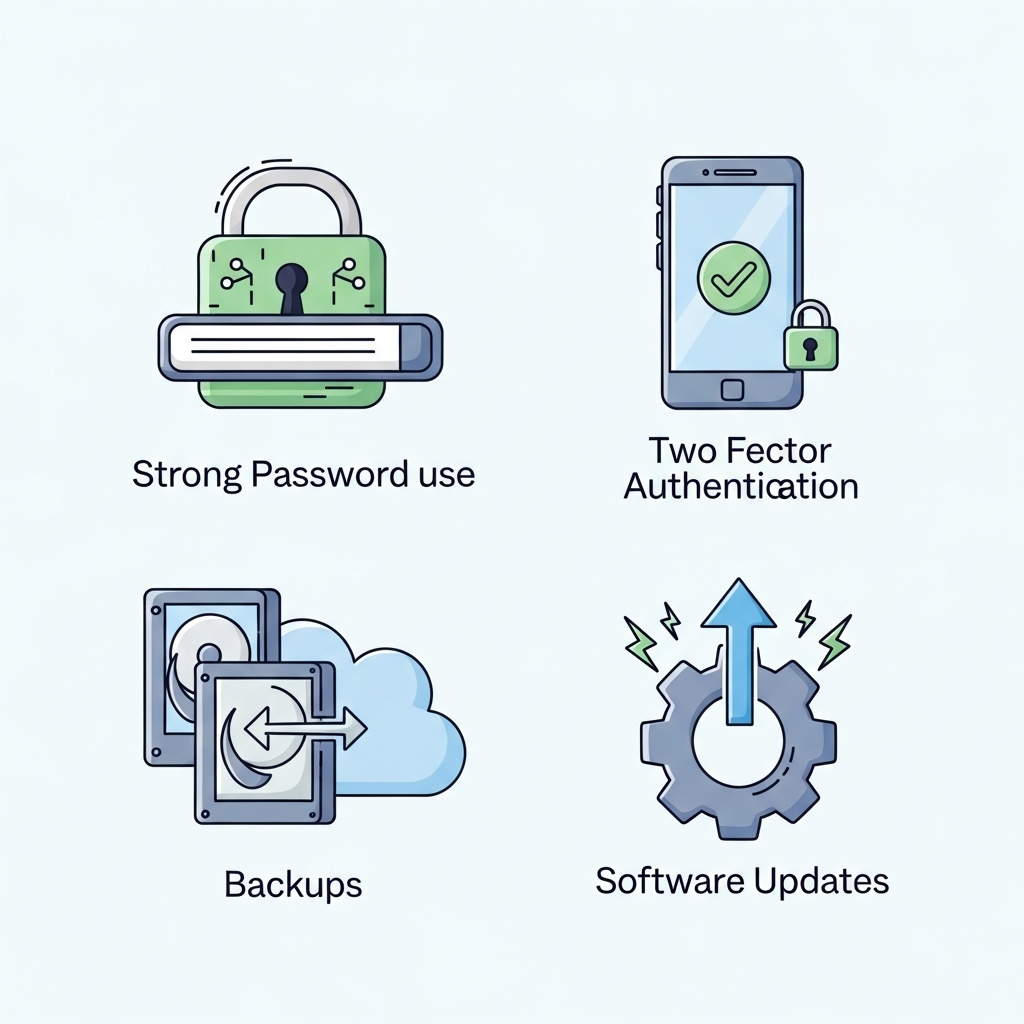In today’s digital world, secure data management is more important than ever. Whether you’re sharing photos with family or running a small business, knowing your data is safe gives you peace of mind and helps prevent costly problems later on.
Understanding the Importance of Secure Data Management
Why does secure data management matter to everyone? Simply put, your personal and business information is valuable, so you need to protect it. Just as you lock your front door to keep your home safe, you must secure digital data to prevent leaks, theft, or accidental loss. Without proper safeguards, you risk not only losing data, but also damaging your reputation and losing the trust of others.

Common Risks to Your Personal and Business Data
Many threats target both personal and business information. For instance, cybercriminals often try to steal data through phishing emails or weak passwords. Accidents, such as losing a laptop or accidentally deleting files, happen more often than you might think. Natural disasters also pose risks if data isn’t properly backed up. These dangers underscore the importance of adopting secure data management habits. According to CISA, many breaches happen due to simple oversights, making vigilance essential for everyone.
Simple Data Protection Strategies Anyone Can Use
Thankfully, protecting your data doesn’t require complicated tools or technical know-how. Here are some straightforward strategies:
- Use Strong Passwords: Choose passwords that are unique and hard to guess. You can use password managers to remember them for you.
- Enable Two-Factor Authentication: Add an extra layer of security to important accounts by requiring a code sent to your phone.
- Regular Backups: Make copies of important documents and photos, and store them in a secure, separate location.
- Update Software: Keep your devices and apps current to fix known vulnerabilities.

How Secure Data Management Builds Trust in Today’s World
People value their privacy. So, when companies or individuals demonstrate strong secure data management habits, it builds credibility and trust. If you’re in business, showing that you care about data safety makes people more likely to work with you, as it reassures them that their information is in good hands. For more on how privacy builds trust, see the insights offered by Epic.org.
Exploring Secure Data Storage Solutions for Everyday Users
Everyone needs ways to keep personal and business files safe. Secure data storage solutions come in many forms. For example, external hard drives help you store backups physically, whereas encrypted USB drives offer security for data on the go. Some people choose network-attached storage (NAS) for home or small business use, which can also feature password protection and encryption. Whichever you choose, the goal is to ensure your information is both accessible and protected from unauthorized access.

Cloud Data Security Solutions Made Easy
Today, the cloud is a popular choice for backups and file sharing. But, cloud data security solutions are crucial for peace of mind. Good services encrypt your content and give you control over who can view or edit your files. Always choose reputable providers with transparent security measures. Some even send account alerts for suspicious activity. And, make sure you read privacy policies so you understand where your data is stored and who has access.
Data Governance and Compliance: What You Need to Know
Data governance and compliance might sound intimidating, but at their core, they simply mean setting up clear rules for how data is handled. For businesses, this often involves following laws like the General Data Protection Regulation (GDPR) in Europe, or the California Consumer Privacy Act (CCPA) in the U.S. Even individuals can benefit from basic governance by knowing what information they collect, store, and share, and making sure unnecessary data is regularly deleted. Learning more about compliance through resources like IAPP can empower you to make informed choices.
Choosing the Right Secure Data Management Approach for You
There isn’t a one-size-fits-all solution. Your personal data protection strategies should depend on your habits, business needs, and comfort level with technology. Some prefer simple tools, while others may want more advanced solutions. Reviewing your unique situation — and adjusting as your needs change — ensures your approach grows with you. If you ever feel overwhelmed or need expert advice, partnering with a company like Blanmo can help guide you to solutions that fit your lifestyle or business.
Staying Safe: Practical Tips for Ongoing Data Security
Good secure data management is an ongoing process, not a one-time task. Try to:
- Review account activity regularly for signs of suspicious access
- Update privacy settings on your social media accounts as platforms change
- Teach family members or employees about strong data protection strategies
- Set reminders to back up and delete unneeded files
- Stay up to date with the latest threats through trustworthy news sources
Ultimately, by making secure data management a habit, you help keep your digital world — and the people you care about — much safer. Every small effort counts, and it’s never too late to start improving how you approach data security.
